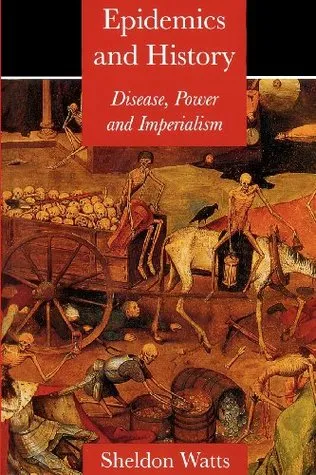Epidemics and History: Disease, Power and Imperialism
By (author): "Sheldon Watts"
Publish Date:
November 10th 1997

ISBN0300080875
ISBN139780300080872
AsinEpidemics and History: Disease, Power and Imperialism
Original titleEpidemics and History: Disease, Power and Imperialism
This book is a major and wide-ranging study of the great epidemic scourges of humanity—plague, leprosy, smallpox, syphilis, cholera, and yellow fever/malaria—over the last six centuries. It is also much more. Sheldon Watts, a cultural and social historian who has spent much of his career studying and teaching in the world’s South, applies a wholly original perspective to the study of global disease, exploring the connections between the movement of epidemics and the manifestations of imperial power in the Americas, Asia, Africa, and in European homelands. He shows how the perceptions of whom a disease targeted changed over time and effected various political and medical responses. He argues that not only did Western medicine fail to cure the diseases that its own expansion engendered, but that imperial medicine was in fact an agent and tool of empire.Watts examines the relationship between the pre-modern and modern medical profession and such epidemic disasters as the plague in western Europe and the Middle East; leprosy in the medieval West and in the nineteenth-century tropical world; the spread of smallpox to the New World in the age of exploration; syphilis and nonsexual diseases in Europe’s connection with Asia; cholera in India during British rule; and malaria in the Atlantic Basin during the eras of slavery and Social Darwinism. He investigates in detail the relation between violent environmental changes and disease, and between disease and society, both in the material sphere and in the minds and spirits of rulers and ruled. This book will become the standard account of the way diseases—arising through chance, through reckless environmental change engineered by man, or through a combination of each—were interpreted in Western Europe and in the colonized world.